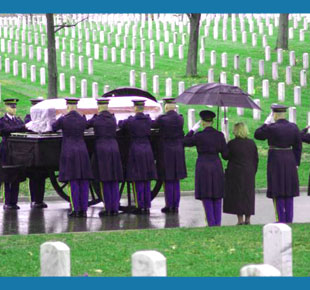
Military death investigation is the science of determining the exact cause of demise for active duty military personnel who are killed in action. It is of paramount importance that every soldier’s death be accounted for and investigated, in order to improve the operational effectiveness and success rate of military endeavors, as well as for the equally important task of providing closure for the soldier’s family.
Death investigation is already a niche facet of the detective arts and military deaths must be investigated by active duty special armed forces investigators. This makes military death specialists extreme niche professionals who often go on to enjoy highly successful careers in certain sectors of private investigation once they retire from serving their countries.
This dialog details the process and reasons for military death cases. We will cover the usual explanations for military deaths and examine how each is impacted by the investigative process.
Military Death Investigation Defined
Whenever a soldier dies in active duty, the armed forces will commence an investigation as to the exact cause of death, particularly when the true reason might not be immediately apparent. Being that armed conflict can create many lethal scenarios, this investigation might be difficult and can take considerable time to unfold while all the evidence is collected and evaluated.
It is important to military operations to know why each and every soldier died. This data helps strategists to predict and minimize casualties from every operation. If a death can be avoided by changing policy or procedure, then these alterations can be implemented towards better odds of personnel survival. In essence, the military is always learning from its casualties, encouraging the evolution of new techniques for preserving life and increasing effectiveness in all phases of combat.
It is also crucial to provide an explanation for each soldier’s death to the media, and more importantly, to their surviving family members. People want to know why a soldier had to make the ultimate sacrifice in order to better judge military policy and campaign progression.
Friendly-Fire Death Investigation
Friendly fire is a particular type of death wherein a solider is killed due to the actions of troops on their own side of the conflict. Soldiers might die from gunfire gone awry, misused explosive ordinance or simply gross negligence in leadership decision-making on the battlefield.
These incidences of friendly fire must receive special attention, since they contribute to low morale in the armed forces and can become true disasters in the media. Worse of all, when family members discover that their loved one did not need to die, were it not for an operational mistake, justifying the death becomes that much more difficult
In order to prove that a soldier died because of friendly fire, investigators will employ every method available, including interviewing witnesses, performing various reenactment tests and using autopsy findings to come to a determination on the true cause of death.
Military Death Investigation Experts
Military casualty investigators require highly specialized skills that can only be earned over years of experience in actual combat settings. The best of these investigators come from backgrounds including medicine, military science, ballistics, explosives ordinance, computer simulations and physics. In fact, most death investigation teams consist of multiple members who each specialize in analyzing particular facets of the horrific occurrence.
Becoming a military casualty investigator is not a common private eye career path, but for those who do build skills in this niche, the future is bright with opportunity in many private sectors of the detective arts. Many retired military personal go on to enjoy successful careers in forensics, professional investigation, careers in the medical examiner’s office and as consultants to police and government agencies worldwide.
Although it is a human tragedy each time a soldier is killed anywhere in the world, it is at least slightly comforting to know that the death might not be completely in vain. Instead, if lessons can be learned from a soldier’s demise, then this ultimate sacrifice might actually go on to save many more lives of combat personnel in the future.


